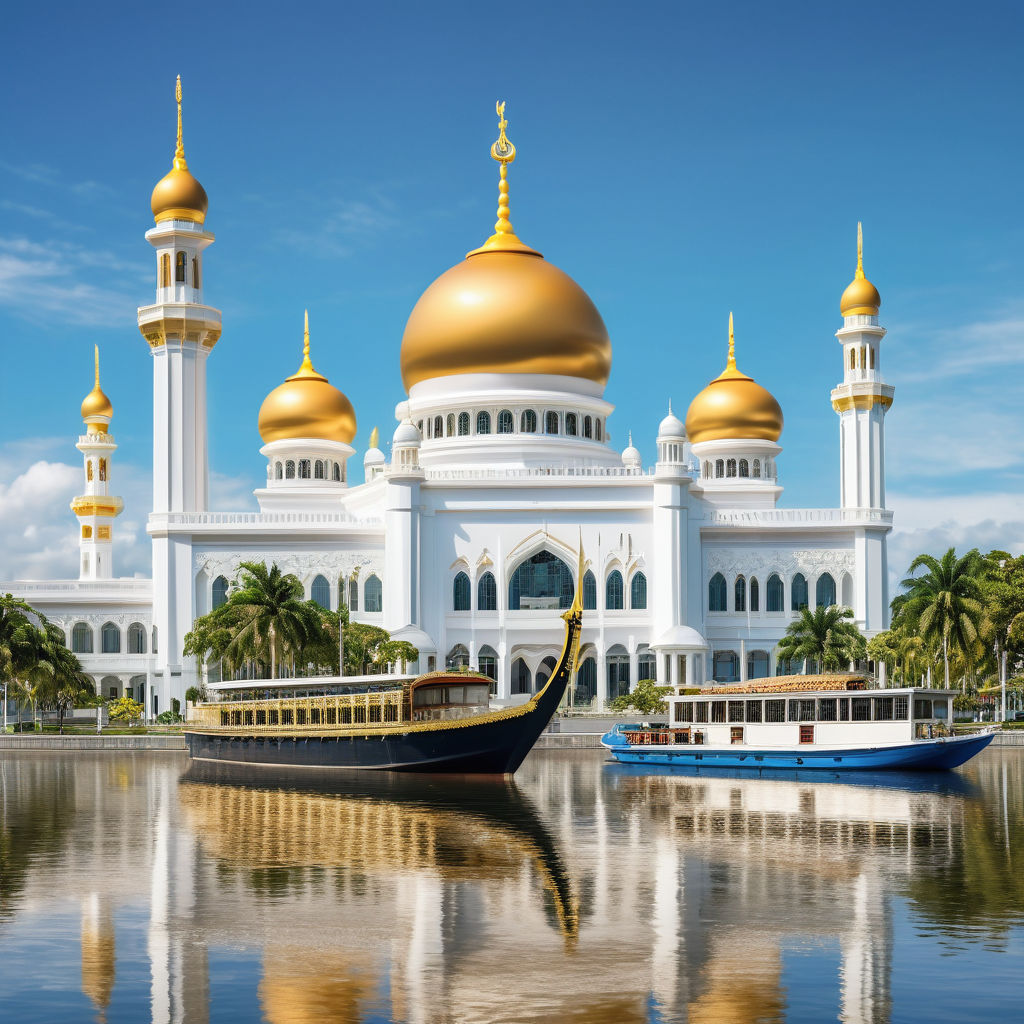Introduction to Brunei: A Wealthy Nation with Rich Cultural Heritage
Discover Brunei: A Blend of Malay Traditions and Modern Prosperity

Introduction to Brunei
Brunei, officially known as Brunei Darussalam, is a small, wealthy nation located on the island of Borneo in Southeast Asia. It is bordered by Malaysia and the South China Sea, with a population of approximately 440,000 people. The capital city, Bandar Seri Begawan, serves as the political, economic, and cultural heart of the country. Brunei is known for its pristine rainforests, rich cultural heritage, and significant oil and gas reserves that contribute to its high standard of living. Brunei's cultural heritage is a blend of Malay traditions, Islamic influences, and modern development. The country celebrates a variety of cultural events and festivals, such as Hari Raya Aidilfitri, which marks the end of Ramadan, and the Sultan's Birthday, a national holiday featuring parades, cultural performances, and public celebrations. Brunei's architecture, including the Sultan Omar Ali Saifuddien Mosque, reflects its Islamic heritage and modern prosperity.
Cross-national and Cross-cultural Understanding
Bruneians generally exhibit a welcoming attitude towards other cultures, influenced by the country's strategic location and historical interactions with various civilizations. This openness is evident in the numerous cultural exchanges, educational programs, and international partnerships that promote cross-cultural understanding. Cultural exchanges play a significant role in fostering cross-cultural understanding in Brunei. The country hosts various festivals and events that celebrate both local and international traditions. The Brunei Darussalam International Tattoo, for instance, showcases military bands from around the world, promoting cultural exchange through music. Additionally, the Brunei December Festival includes diverse activities and performances that attract international participants and audiences. Educational programs in Brunei emphasize global awareness and cross-cultural understanding. Schools and universities incorporate multicultural perspectives into their curricula, encouraging students to appreciate and respect diversity. Universiti Brunei Darussalam collaborates with international institutions to facilitate student and faculty exchanges, enriching the educational experience and fostering global connections.
Interactions and Social Dynamics
Typical interactions between Bruneians and foreigners are characterized by respect, hospitality, and a strong sense of community. Social behaviors in Brunei reflect a blend of traditional customs and contemporary influences, emphasizing respect for others, hospitality, and communal living. Communication styles in Brunei are generally formal and polite. Malay is the official language, but English is widely spoken, especially in business and education. This bilingualism facilitates interactions with tourists and expatriates, making it easier for them to integrate into the local community. Cultural norms in Brunei place a strong emphasis on respect for elders, community involvement, and a relaxed approach to life. These norms create a welcoming and inclusive atmosphere for foreigners, who often find it easy to adapt to the local way of life. Public displays of affection are generally discouraged, in line with Islamic customs, but social gatherings and communal activities are vibrant and inclusive.
Views on Dating and Relationships
Attitudes towards dating and relationships with foreigners in Brunei are generally open and accepting, though they are influenced by cultural and religious values. Bruneians recognize the opportunities for cultural exchange and personal growth that such relationships can bring. However, cultural expectations and traditions play a significant role in shaping these views. Family involvement is crucial in relationships in Brunei, with elders often playing a significant role in the approval process. Traditional customs emphasize respect, patience, and the gradual building of trust in relationships. While modern dating practices influenced by global trends are becoming more common among younger generations, traditional values still hold sway in many communities.
Marriage and Family
Marrying a foreigner in Brunei involves navigating both legal and social considerations. Legally, the country follows Islamic law, which includes specific regulations governing marriage, such as the requirement for a guardian's consent and the stipulation that the groom provide a mahr (dowry). Non-Muslims marrying Bruneians may need to convert to Islam, reflecting the country's religious and cultural values. Familial acceptance is a key factor in cross-cultural marriages. Bruneian families can be protective, and gaining their approval is often essential for the relationship's success. However, the diverse cultural landscape of Brunei means that many families are already familiar with and accepting of different cultural backgrounds, which can facilitate smoother integration for foreign spouses. Trends in cross-cultural marriages reflect Brunei's open and inclusive society. Many Bruneians who travel abroad for education or work form relationships with individuals from various cultures, bringing back diverse customs and traditions that enrich the local community.